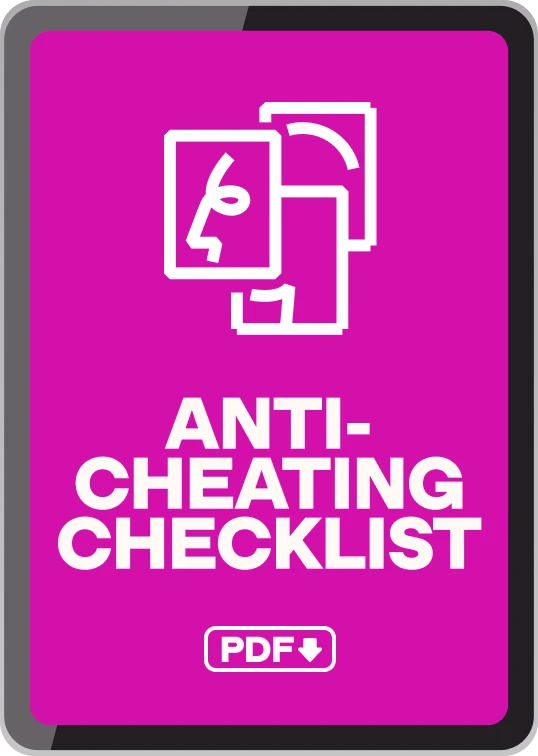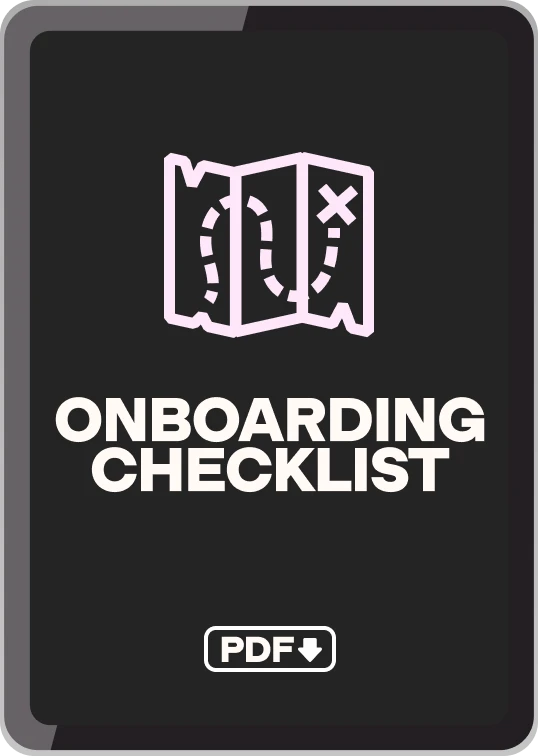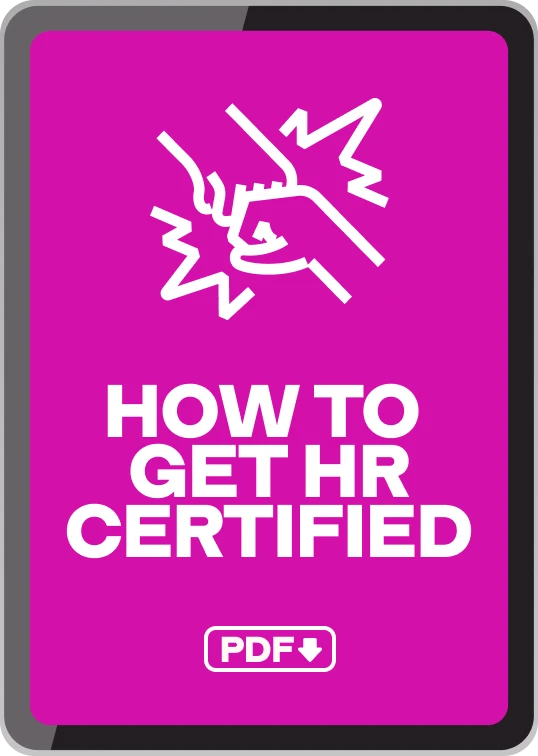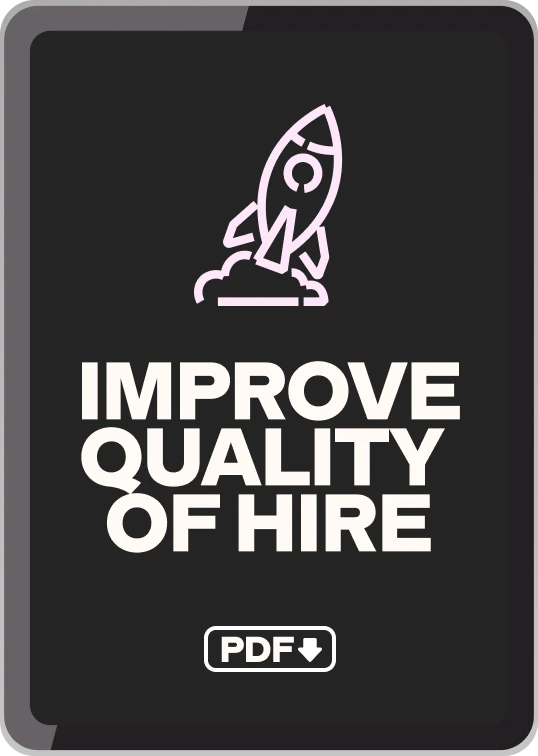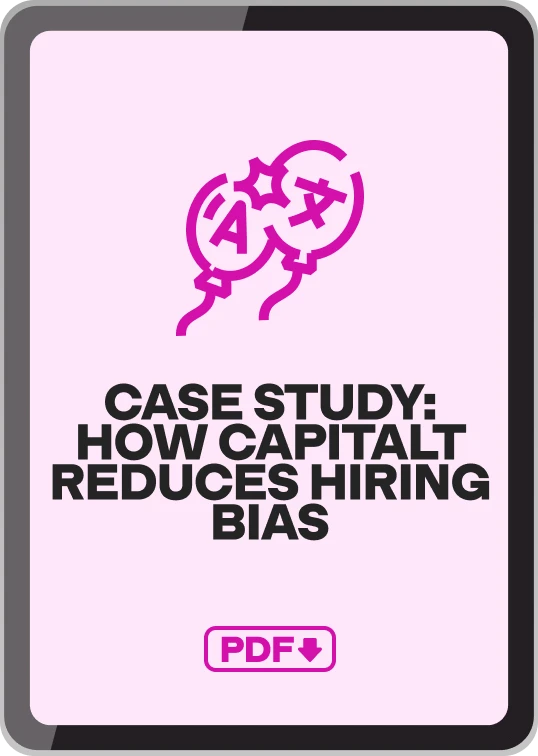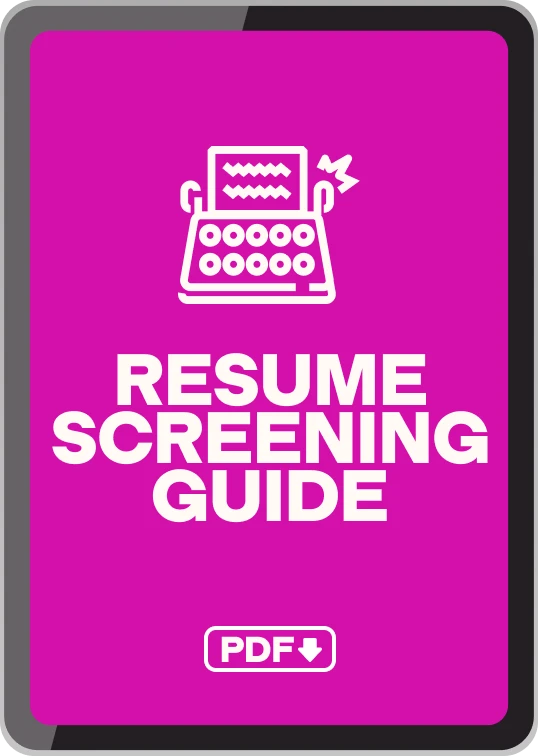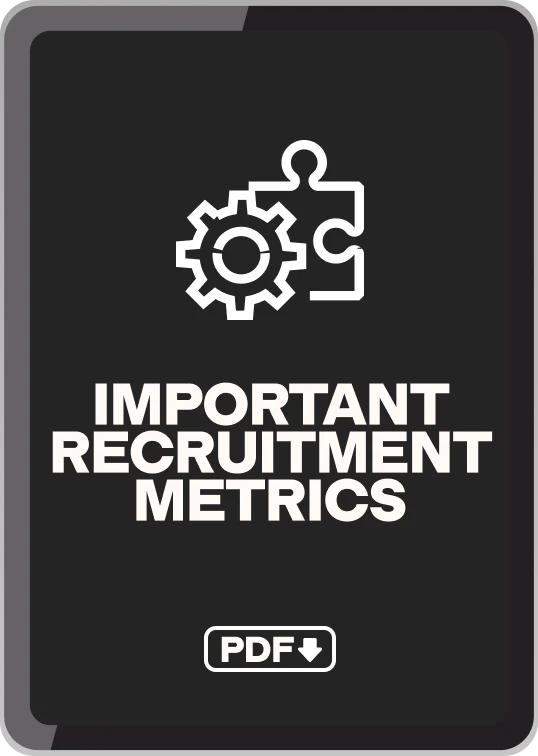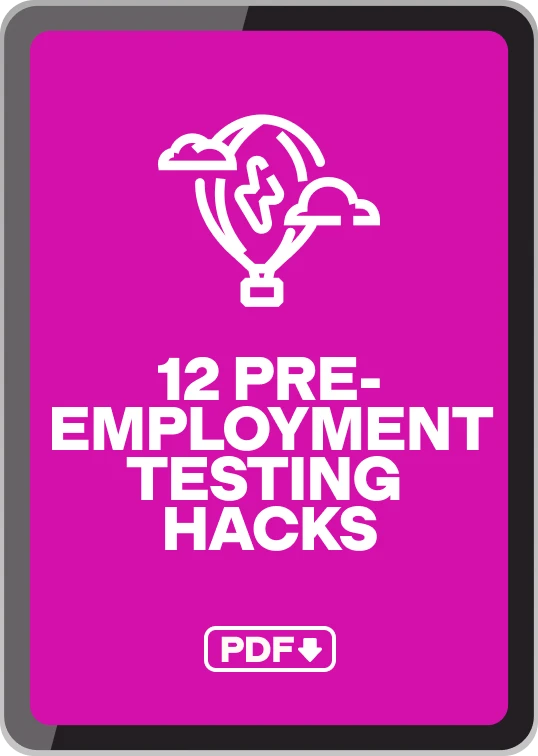How can you make special accommodations during the hiring process when using skills tests?
Hiring a diverse workforce is key to business success. Although ethnic and gender diversity have been studied closely in recent years, these aren’t the only categories to which diversity refers. A key component of diversity, equity, and inclusion is providing reasonable accommodations to candidates and employees with disabilities.
According to the United States Census Bureau, nearly 9.5 million working Americans have a disability, but many Americans with a disability remain underemployed. This negatively impacts business outcomes, as Researchers S. Narayanan and E. Terris demonstrated that teams with more employees with disabilities are more productive than less diverse teams.
According to Harvard Business Review, neurodiversity in the workplace can provide a strong competitive advantage. Neurodiverse employees are employees who experience and interact with the world differently, often used in the context of persons with neurodevelopmental disabilities, such as autism spectrum disorder (ASD) or dyslexia. These employees can help drive better business outcomes, as they might possess exceptional skills, such as heightened pattern recognition, mathematical reasoning, and memory, among others.
Providing reasonable accommodation to people with disabilities (both in the workplace and during recruitment) is a legal requirement in most countries around the world.
In this article, we’ll look at some of the reasonable accommodations employers can provide, and we’ll also explain how TestGorilla is helping employers with reasonable accommodations.
Table of contents
- Do you need to provide reasonable accommodation to candidates with disabilities?
- What are the regulations that govern special accommodations during the hiring process?
- What are some examples of reasonable accommodation employers could provide when administering pre-employment tests?
- How can you provide reasonable accommodation to applicants with disabilities when using TestGorilla’s skills tests?
- Disability accommodations are a key component of a fair hiring process
Do you need to provide reasonable accommodation to candidates with disabilities?
Yes — in most countries, you need to provide reasonable accommodation to applicants with disabilities. These requirements also apply to online skills tests and remote recruitment.
With online assessments, different disabilities might affect applicants’ ability to take a test. Some common disabilities include:
Learning disabilities, such as dyslexia, dysgraphia, and language processing disorders
Neurodevelopmental disabilities, such as autism spectrum disorder (ASD), attention deficit hyperactivity disorder (ADHD), and attention deficit disorder (ADD)
Visual and sight impairments
Fine motor skill disabilities, such as cerebral palsy and multiple sclerosis
Intellectual disabilities
Businesses need to be able to accommodate applicants with these and other disabilities.
The exact details of what this means vary a lot from country to country, so if you’re unsure of the specific requirements that apply to you, we advise you to seek legal advice.
If you’re administering online skills tests as a part of your recruitment process, you need to inform candidates of this in advance. According to the Job Accommodation Network, candidates with disabilities are then responsible for informing you or the testing company in advance of the test that they need specific accommodations, to allow sufficient time to provide reasonable accommodations.
What are the regulations that govern special accommodations during the hiring process?
Regulations that govern specific accommodations to applicants with disabilities during the hiring process vary from country to country. Let’s take a look at some of them.
Global regulations
Globally, the UN Convention on The Rights of Persons with Disabilities (referred to as CRPD or UNCRPD) requires all convention parties (currently 182) to guarantee that people with disabilities enjoy full equality in society, including in the labor market.
CRPD’s Article 27 provides specific guidelines on how states should safeguard and promote equal access to employment. This article also prohibits discrimination on the basis of disability, including during the recruitment and hiring process.
In the US
In the US, the EEOC (Equal Employment Opportunity Commission) provides guidelines on reasonable accommodations and testing procedures. The specific legal requirements are detailed in the Americans with Disabilities Act (ADA).
In short, the ADA makes it unlawful to use employment tests in a way that screens out individuals with disabilities, unless the reasons are job-related and consistent with a specific business necessity. Additionally, it’s unlawful for employers to fail to provide reasonable accommodations to applicants unless this would impose an undue hardship on the company.
In the EU
In the EU, reasonable accommodation requirements are regulated by the Council Directive 2000/78/EC of 27 November 2000 and local legislation in each member state.
EU companies must provide reasonable accommodation to all employees with disabilities. The right to reasonable accommodations covers all work-related activities, from recruitment (and therefore pre-employment assessments and other screening procedures) to termination of employment. Accommodations must not, however, impose a disproportionate burden on the employer.
Examples of reasonable accommodation include adjusting written materials to improve accessibility, such as administering a test orally instead of in writing or creating an inclusive work culture where everyone can perform their job well, regardless of their disability status.
In Australia
In Australia, the Disability Discrimination Act 1992 defines the provisions employers must make for employees or prospective employees with disabilities. Employers cannot discriminate against applicants on the basis of disabilities and must make reasonable adjustments to provide equal opportunity to all applicants.
The Reasonable Adjustment Policy of the Australian Public Service Commission provides more details on the reasonable adjustments that employers must make to accommodate employees and applicants with disabilities.
In the UK
In the UK, the Equality Act 2010 specifies that employers must make reasonable adjustments to individuals with disabilities or health conditions. The Equality Act applies to the recruitment process, particularly written tests.
Reasonable adjustments include modifying the recruitment process so that an applicant can be considered for a role.
What are some examples of reasonable accommodation employers could provide when administering pre-employment tests?
Employers can make many reasonable accommodations when administering pre-employment tests to provide candidates with disabilities equal opportunity in the recruitment process.
In a testing environment, an employer might wish to provide the following reasonable accommodations, among others:
A different test format: A candidate with visual impairments might need a test that uses Braille, large print, or a digital format that a screen reader can read.
The option to answer questions verbally: Someone with a fine motor skill disability (such as cerebral palsy) might need to answer questions verbally or answer questions with the help of a scribe/typist.
Extra time on tests: A candidate with a learning disability, such as dyslexia or a language processing disorder, might need more time to answer all questions.
Extra breaks: Persons with disabilities might need extra breaks for various reasons. For example, someone with autism spectrum disorder might need breaks to prevent overstimulation. Other candidates might have increased bathroom needs.
When administering online skills assessments, employers often use the services of pre-employment test providers such as TestGorilla. In these cases, the employer needs to make sure the testing company is compliant, and they both need to work together to implement reasonable accommodations for applicants with disabilities.
At TestGorilla, we’ve created a feature allowing you to provide reasonable accommodations to candidates when administering skills assessments.
How can you provide reasonable accommodation to applicants with disabilities when using TestGorilla’s skills tests?
TestGorilla provides a system for candidates to request accommodations when taking an assessment on the platform.
This feature allows employers to provide reasonable accommodations to applicants with a disability and make sure that their hiring process is fair and objective.
This section will explain more about the feature, how it works, why we have created it, and whether you can disable it.
How does TestGorilla’s reasonable accommodation feature work?
TestGorilla asks all candidates to indicate whether they may need special accommodations during a test through a special step in the assessment setup process.
Candidates can explain how a particular condition may affect their ability to take the test so that the TestGorilla team can consider suitable accommodations. At this stage of the process, applicants can choose whether they want this information to be shared with the employer or not.
Requests for complex and/or atypical accommodations may be beyond the scope of TestGorilla’s standard internal processes. In these exceptional cases, TestGorilla will seek permission from the candidate to communicate with the employer directly about the request. Ultimately, the employer must determine appropriate accommodations for candidates, and TestGorilla supports employers to consider and respond to the needs of all applicants.
This gives candidates the confidence to request the reasonable accommodation they need without fearing discrimination based on their disability, either consciously or unconsciously.
Why have we created this feature?
At TestGorilla, we aim to help employers create an unbiased, non-discriminatory, and inclusive recruitment process.
We’ve created this feature to give employers the possibility to:
Create a fair hiring process that doesn’t discriminate against any of their applicants, including applicants with disabilities
Comply with special accommodation requirements
Be inclusive of candidates with all forms of disability and ability, and hire a diverse workforce
Being sensitive to the needs of all your applicants and employees allows you to create a truly inclusive company culture, in which everyone feels welcome.
Can you disable the reasonable accommodations feature?
We allow companies to disable the feature because we think that our customers should be able to tailor the testing experience for specific hiring processes and particular legal constraints.
We recognize that an employer may determine that a particular accommodation is unreasonable, given the nature of the position and its job-related functions. For example, an employer may determine that an accommodation for extra testing time is unreasonable for a position with essential job functions including fast and accurate processing of written information. Responsibility for this legal determination ultimately lies with the employer, and TestGorilla supports employers to implement pre-employment testing processes aligned with its unique needs and requirements.
Keep in mind, however, that turning off this feature may carry significant legal risk, which depends on the particularities of the job vacancy, the employment test, and any applicable laws.
By turning off this feature, you may be in violation of fair employment laws and regulations in your area regarding special accommodations for disabilities. To emphasize this fact, if you try to disable the reasonable accommodation feature, you’ll get a similar warning in the app. If you’re unsure, we strongly suggest seeking legal advice before proceeding.
Disability accommodations are a key component of a fair hiring process
Most hiring managers are familiar with the advantages of diversity in the workplace; disability is simply another aspect of building an inclusive workforce.
However, beyond acknowledging the advantages of hiring a truly diverse workforce, employers also need to comply with rules and regulations which require them to provide reasonable accommodations for applicants and employees with disabilities, including during the hiring process.
TestGorilla’s feature helps you provide reasonable accommodation to your applicants with varying levels of disability. This allows you to make sure your hiring process is fair and unbiased and that you’re able to provide equal employment opportunities to all candidates.
—Disclaimer: The information contained in this site is provided for informational purposes only and should not be construed as legal advice on any subject matter. If you have any questions on disability accommodations in your area, please consult with a lawyer.
Related posts
You've scrolled this far
Why not try TestGorilla for free, and see what happens when you put skills first.
Latest posts
The best advice on pre-employment testing, in your inbox.
No spam. Unsubscribe at any time.

Hire the best. No bias. No stress.
Our screening tests identify the best candidates and make your hiring decisions faster, easier, and bias-free.
Free resources
This checklist covers key features you should look for when choosing a skills testing platform
This resource will help you develop an onboarding checklist for new hires.
How to assess your candidates' attention to detail.
Learn how to get human resources certified through HRCI or SHRM.
Learn how you can improve the level of talent at your company.
Learn how CapitalT reduced hiring bias with online skills assessments.
Learn how to make the resume process more efficient and more effective.
Improve your hiring strategy with these 7 critical recruitment metrics.
Learn how Sukhi decreased time spent reviewing resumes by 83%!
Hire more efficiently with these hacks that 99% of recruiters aren't using.
Make a business case for diversity and inclusion initiatives with this data.








